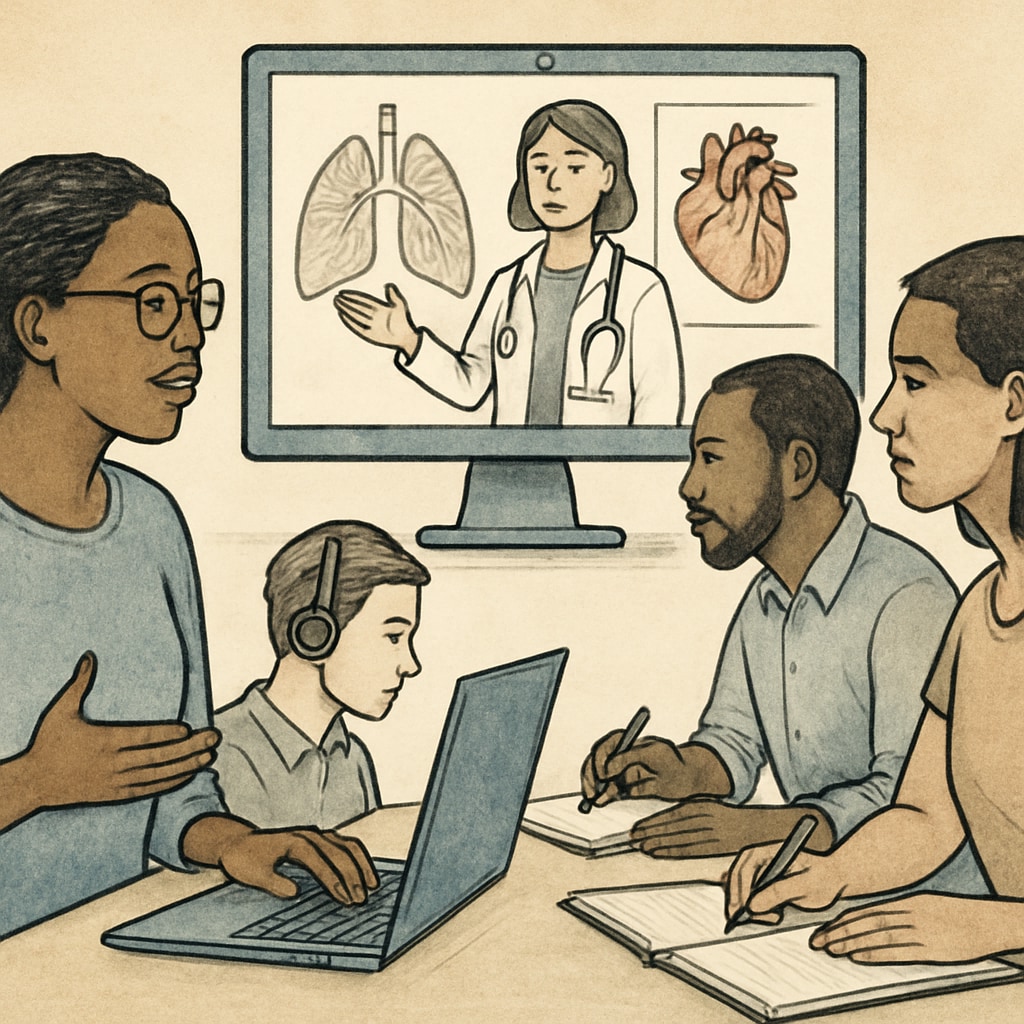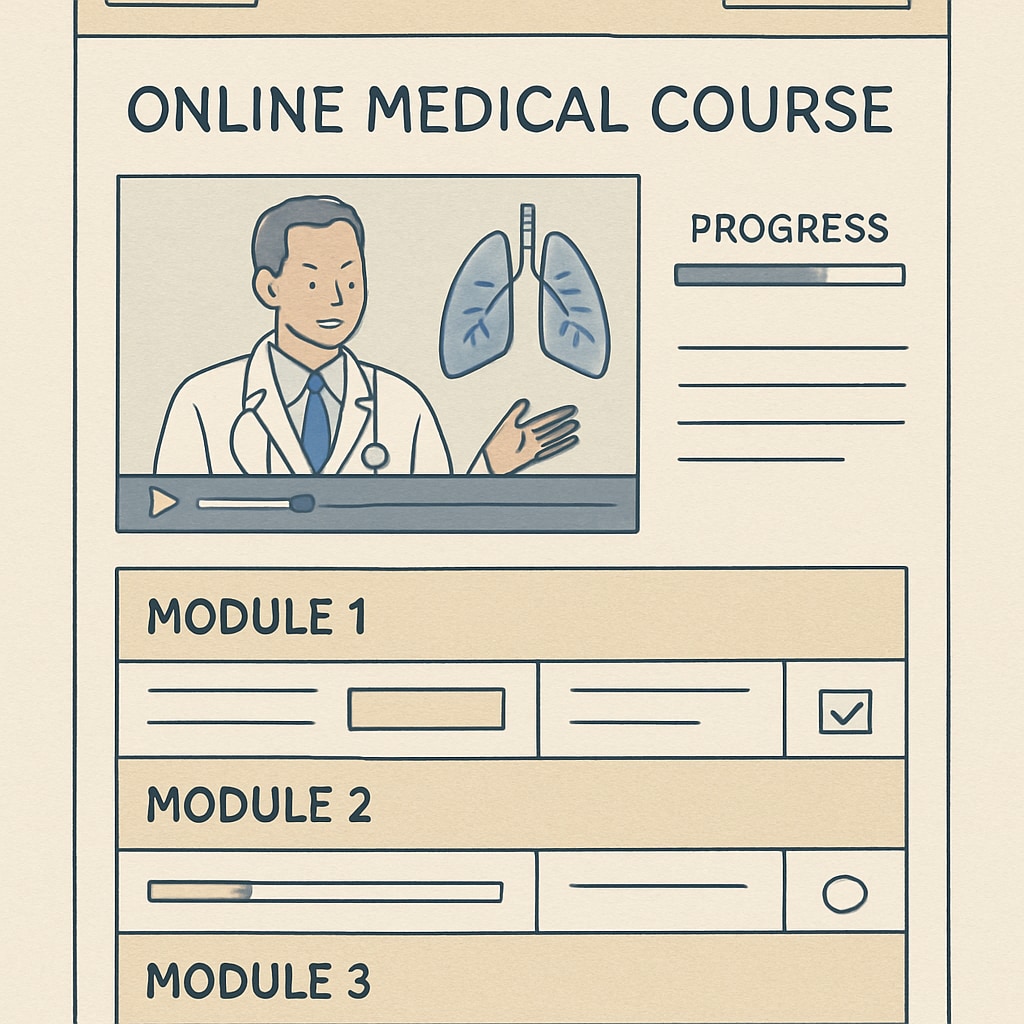In today’s health-conscious world, there is a growing demand for accessible medical education for non-medical backgrounds. As people become more aware of the importance of health and wellness, non-medical professionals are increasingly interested in understanding medical concepts. However, many face challenges in finding resources that bridge the gap between foundational knowledge and advanced medical education. This article examines how tailored online courses and other learning solutions can provide a pathway for non-medical individuals to acquire in-depth medical knowledge, making learning more inclusive and accessible.
Why Non-Medical Professionals Seek Medical Knowledge
Many non-medical professionals are drawn to medical education for various reasons. Some are caregivers who wish to better understand medical care for loved ones. Others are professionals in adjacent fields like fitness, psychology, or nutrition, where medical knowledge enhances their expertise. Additionally, some individuals are simply curious about human biology and health sciences. However, traditional medical education is often inaccessible to these learners due to its time commitment, high costs, and prerequisite qualifications.
For example, while medical textbooks or university-level courses offer in-depth knowledge, they are often too specialized for beginners. As a result, there is a need for accessible alternatives that cater to non-specialists while maintaining educational rigor.

Online Courses: A Flexible Solution for Medical Education
Online courses have emerged as an ideal solution for non-medical professionals seeking medical education. They offer flexibility, affordability, and accessibility, making it easier to learn anytime and anywhere. Platforms like Coursera, edX, and Udemy feature a wide range of medical courses, from basic anatomy to specialized topics such as epidemiology or mental health.
Here are some benefits of online courses for medical learning:
- Self-paced learning: Learners can progress based on their own schedule, balancing education with personal and professional commitments.
- Affordability: Many courses are free or low-cost, and learners only pay for certification if desired.
- Diverse topics: Courses range from introductory-level to advanced specializations, ensuring something for every learner.
Moreover, interactive features such as quizzes, videos, and discussion forums enhance engagement and retention. For example, the course “Introduction to Human Physiology” on Coursera provides a beginner-friendly approach to understanding the body’s systems, perfect for non-medical learners.

Key Considerations for Choosing the Right Medical Education Resource
Not all online courses or resources are created equal. When selecting a medical education resource, non-medical professionals should consider the following factors:
- Accreditation: Choose courses offered by reputable institutions or organizations to ensure accuracy and credibility.
- Level of complexity: Look for courses designed for beginners or non-specialists, avoiding overly technical content.
- Interactivity: Opt for resources that include multimedia content, assignments, or peer discussions for a richer learning experience.
- Certification: Decide if a certified course is required for professional purposes or if personal knowledge suffices.
For instance, the World Health Organization (WHO) provides free online courses through its OpenWHO platform, offering reliable and globally recognized medical education.
The Future of Accessible Medical Education
As technology advances, the future of medical education for non-medical backgrounds looks promising. Virtual reality (VR) simulations, AI-driven personalized learning, and gamified platforms are set to transform how medical knowledge is delivered. These innovations will create even more engaging and effective learning experiences, helping non-specialists gain confidence in understanding medical concepts.
In addition, partnerships between educational organizations and healthcare institutions can lead to the creation of hybrid learning models, combining online flexibility with hands-on workshops. This approach could further enrich the learning journey for non-medical professionals.
Ultimately, the goal is to make medical education more inclusive, empowering individuals from all walks of life to better understand and manage health-related challenges.
Conclusion: Medical education is no longer limited to healthcare professionals. With the rise of online courses and accessible resources, non-medical professionals can now explore this fascinating field. By choosing the right platforms and courses, learners can gain valuable insights into health sciences, bridging the gap between curiosity and expertise.
Readability guidance: Short paragraphs and lists summarize key points effectively. Transitions like “for example” and “in addition” make the article flow smoothly. The content balances technical information with an engaging tone, ensuring accessibility for a broad audience.


